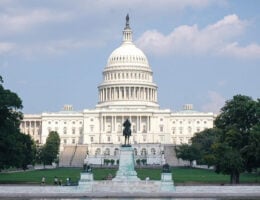The new DOJ FCPA enforcement policy emphasizes US national security and business interests, moving away from solely prosecuting bribery of foreign officials. The focus will be on bribes involving Transnational Criminal Organizations (TCOs), cartels, and those impacting US competitiveness or national security. Routine, locally accepted business practices are deprioritized. The DOJ will exercise discretion to determine if conduct genuinely impacts US interests, leaving other cases to the SEC or foreign regulators. This creates a more nuanced and unpredictable enforcement environment, with clarity expected only as enforcement patterns emerge.
Companies are navigating a shifting ESG and sustainability regulatory landscape across Europe and the US. The session opened with an overview of deregulatory trends in Europe, including the Omnibus package, evolving CSRD and CSDDD obligations, and the EU Deforestation Regulation. In contrast, the US discussion highlighted the rise of the anti-ESG movement at the federal level, set against California’s continued push for climate disclosure laws impacting both public and private companies.
On 12 May 2025 the newly issued Criminal Division White-Collar Enforcement Plan, the Head of the US Department of Justice (DOJ)’s Criminal Division, Matthew R. Galeotti, set out the Department’s priorities for corporate criminal enforcement under the new Administration and issued a number of updated policy documents.
These changes affect the Criminal Division’s Corporate Enforcement and Voluntary Self-Disclosure Policy, its policy on the Selection of Monitors (memorialized in the Memorandum on Selection of Monitors in Criminal Division Matters, and the Whistleblower Awards Pilot Program.
Our popular Annual Compliance Conference, which attracts senior in-house legal and compliance professionals every year from across the world, will be held virtually from 3 to 12 June 2025.
The conference will provide you with valuable insights from our international trade, compliance and investigations, regulatory and antitrust lawyers. We will delve into critical topics shaping the future of global businesses such as sanctions, export controls, customs and tariffs, national security laws, antitrust, product regulation, ESG and related enforcement trends.
On February 10, 2025, President Donald Trump signed an Executive Order (“Order”) directing a 6-month moratorium on the enforcement of the Foreign Corrupt Practices Act (FCPA), while the Attorney General revises Department of Justice (DOJ) policies and guidelines governing FCPA enforcement. The Order instructs that these changes be made in the interest of promoting US companies’ ability to compete in foreign markets. While the Order introduces uncertainty for the future of FCPA enforcement, companies are advised to stay the course on compliance and exercise caution when considering any shifts in compliance practices and resourcing in the near term.
A recent memorandum from Attorney General Pam Bondi signals a potential shift in the Department of Justice’s FCPA enforcement priorities. According to the memorandum, FCPA enforcement should prioritize foreign bribery linked to Cartels and Transnational Criminal Organizations (TCOs), potentially altering the landscape of white-collar corporate enforcement. While traditional FCPA cases will likely continue, the new directive grants local US Attorneys’ Offices greater latitude in conducting FCPA investigations touching on Cartels and TCOs.
On 1 August 2024, the US Department of Justice Criminal Division launched a Corporate Whistleblower Awards Pilot Program (“Program”). The announcement was previewed in remarks by DOJ officials in March, and follows the rollout of the DOJ’s Individual Voluntary Self-Disclosure Program in April 2024 and similar programs implemented in the Southern District of New York (SDNY) and the Northern District of California (NDCA), in February and March 2024. Under the Program certain individuals who provide original and truthful information about corporate misconduct may be eligible to receive an award if the information results in successful criminal prosecution and criminal or civil asset forfeiture.
In Snyder v. United States, the Supreme Court, in a 6-3 decision authored by Justice Kavanaugh, significantly limited the federal statute criminalizing gratuities in state and local jurisdictions. Snyder, a mayor, awarded a USD 1.3 million contract and received a USD 13,000 payment from the benefiting company. The Supreme Court ruled that the relevant statute, Title 18 section 666, applies only to bribes paid or promised before an official act, not after-the-fact gratuities.
Having not secured a deferred prosecution agreement in respect of U.K. Bribery Act offences since 2021 and having been rocked by a series of shortcomings regarding its investigation and prosecution of cases, the SFO has arguably been at its lowest ebb.
Baker McKenzie Partner Peter Tomczak has co-authored the sixth edition of The Foreign Corrupt Practices Act Handbook, a sought-after guide for in-house counsel at multinational companies seeking guidance and clarity on FCPA risks globally. The Handbook is published by the American Bar Association.
The Handbook has been fully updated and expanded, offering a comprehensive analysis of FCPA developments as updated from the previous 2018 edition, and anti-bribery and anti-corruption implications for transactions and compliance programs, offering practical guidance on how to address these issues.







